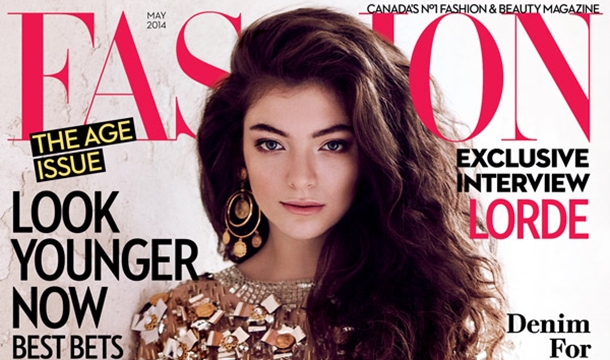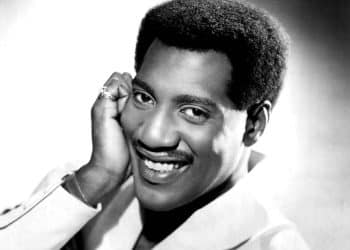Grammy Award winning "Royals" singer Lorde says there is a lot of pressure on young women, including herself, to appear with big smiles and positive energy all the time.
Opening up in Fashion magazine, Lorde explained why she admires Patti Smith, and women that came before her, that were rebellious and refused to conform to sexist ideals of what they should or shouldn't be.
"I’m drawn to women who aren’t painted in history as sweet figures,” she shared with Fashion. "Patti Smith was prickly. She was frustrated. She didn’t take people’s s**t. There’s no better music idol for young women, because there is a lot of pressure for us to be really positive all the time."
She went on to say that "every photo shoot I do, I get asked for big smiles. And I shouldn’t have to be that way."
Lorde's full cover story will be available when Fashion arrives on newsstands April 14. You can also visit FashionMagazine.com for more of her story.
Are you tired of the constant pressure to always be positive? Well, you’re not alone. In a recent interview, Lorde, the renowned singer-songwriter, opened up about the pervasive issue of sexism in the entertainment industry and the double standards imposed on women.
She highlighted how there is an unfair expectation for women to maintain a positive image at all times, despite facing numerous challenges and injustices. Lorde’s candid discussion shed light on the reality that women in the entertainment industry face. They are often subjected to harsh criticism and scrutiny while being expected to exude unwavering positivity.
This double standard not only places immense pressure on these women but also perpetuates gender inequality by silencing their voices and experiences. With her remarks, Lorde calls attention to this systemic issue and advocates for a more inclusive and empathetic society where women are allowed to express their thoughts and emotions authentically without fear of judgment or backlash.
The Pervasive Issue of Sexism in the Entertainment Industry
You’ve probably experienced it yourself – the relentless presence of sexism in the entertainment industry. It’s a pervasive issue that affects women across all aspects of their careers, from actors and musicians to writers and directors. Despite significant progress being made in recent years, there is still a long way to go before true equality is achieved.
In an industry where women are constantly scrutinized for their appearance, talent, and behavior, sexism is deeply ingrained. Women often face unfair treatment, including being paid less than their male counterparts for the same work or being overlooked for important roles and opportunities. The pressure to conform to societal beauty standards only adds to the challenges they face.
What makes matters worse is the expectation for women to always be positive and accommodating. They are often discouraged from speaking out against sexism or any other form of discrimination they may encounter. This pressure can lead to a stifling of their voices and perpetuates the cycle of inequality.
It’s crucial that we continue to shine a light on this issue and support those who are fighting against it. By challenging sexist attitudes and practices within the entertainment industry, we can create a more inclusive environment where all individuals have equal opportunities to thrive.
It’s time to break free from these outdated norms and pave the way for a more equitable future in entertainment.
The Double Standards and Expectations Imposed on Women
Confronting the double standards and expectations placed on women, it becomes evident that you’re constantly required to maintain a facade of unwavering positivity.
Society often expects women to always be cheerful, friendly, and accommodating, regardless of their own personal struggles or emotions. This pressure to always appear happy can be incredibly exhausting and unrealistic.
While men are allowed to express a wide range of emotions without judgment, women are often criticized or labeled as ‘difficult’ when they dare to show any signs of negativity or frustration.
Moreover, these double standards extend beyond just emotional expression. Women are also expected to meet impossibly high beauty standards set by society. They face scrutiny for their appearance in a way that men simply don’t. The pressure to have flawless skin, perfect bodies, and impeccable fashion sense is unrelenting for women in the entertainment industry. This constant focus on their physical appearance can lead to body image issues and low self-esteem.
In addition, women also face societal expectations regarding their roles as caretakers and nurturers. They’re often held responsible for managing household chores, childcare duties, and maintaining harmonious relationships with family members. These expectations can limit their opportunities for personal growth and career advancement. It’s unfair that women are burdened with these additional responsibilities while men are applauded for focusing solely on their careers.
Overall, the double standards and expectations imposed on women create an environment where they feel compelled to hide their true emotions behind a mask of constant positivity. This not only puts immense pressure on them but also denies them the opportunity to fully express themselves as individuals with valid feelings and experiences.
It’s crucial that we challenge these norms and work towards creating a society where both men and women can freely express themselves without fear of judgment or prejudice.
Conclusion
In conclusion, it’s evident that sexism remains a pervasive issue in the entertainment industry.
Lorde’s insightful remarks shed light on the double standards and expectations imposed on women.
The pressure for women to constantly be positive and meet society’s unrealistic standards is unfair and unsustainable.
By speaking out about these issues, Lorde encourages a much-needed conversation about gender inequality in the entertainment industry.
It’s crucial for society to recognize and challenge these sexist norms, allowing women to fully express themselves without fear of judgment or criticism.
Only by addressing these deep-rooted biases can we hope to create a more inclusive and equal industry for all artists.
Let us strive towards an entertainment industry where talent, creativity, and passion are valued above all else, regardless of gender.







